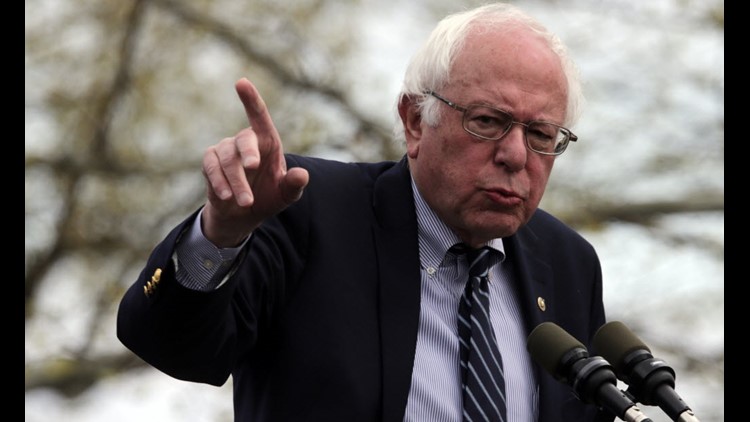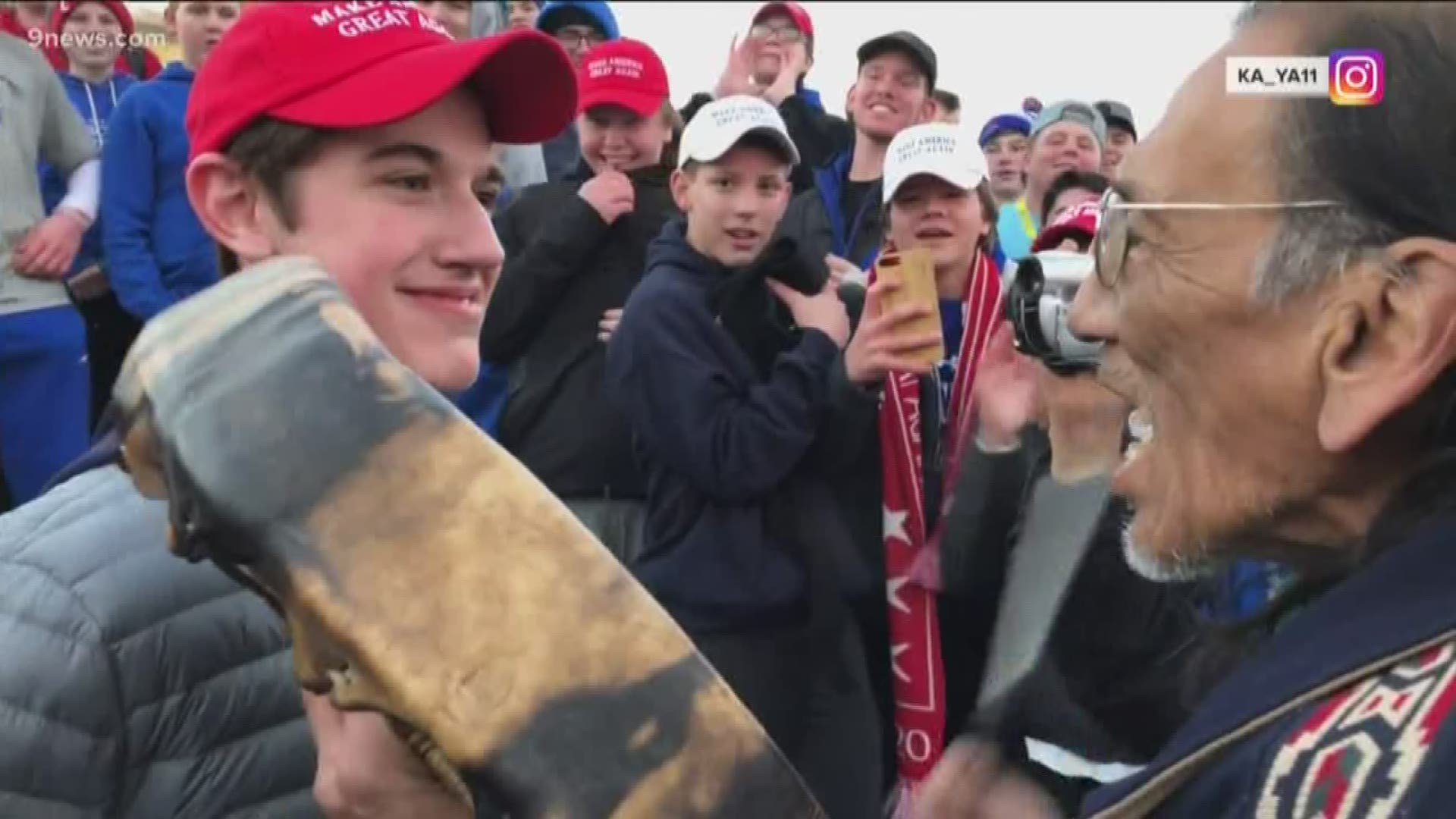![Bernie Sanders: 'This campaign is going to win' [video : 83575100]](http://videos.usatoday.net/Brightcove2/29906170001/2016/04/29906170001_4864941976001_thumb-420224955d8b3915970f6a706700a5c3.jpg?pubId=29906170001)
WASHINGTON — The results of Tuesday's five Democratic presidential primaries will almost certainly force Sen. Bernie Sanders to acknowledge a hard reality -- it's time for Plan B.
Sanders hasn’t said if he has a strategy for changing the focus of his campaign, and he insists he'll continue fighting through the last contest in June. But rather than insisting that victory over Hillary Clinton is still within reach, he said after Tuesday's contests that he'll go to the Democratic Party's national convention in July "with as many delegates as possible to fight for a progressive party platform."
Sanders' campaign believes the delegates he’s collected so far will give him significant clout to achieve that goal.
“I have no doubt that the representation Bernie Sanders will have at the convention will allow him to have a huge impact on the framing of the party platform and the rules and the proceedings of the convention itself,” Tad Devine, a top adviser to Sanders, said in an interview Monday. “Contrary to what may have been said about him being a ‘single issue candidate,’… I think people are going to find out how many issues he’s interested in and how important they are.”
Tuesday's contests -- Clinton won in Delaware, Connecticut, Maryland and Pennsylvania while Sanders won Rhode Island -- gives Clinton a nearly insurmountable lead in pledged delegates, and she already was way ahead of Sanders in superdelegates, the unpledged party leaders and officials who may support the candidate of their choice at the convention. Clinton is expected to have about 90% of the delegates needed to clinch the nomination after all the votes are counted Tuesday.
![Clinton wins Pa., Del., Md.; Sanders wins R.I. [oembed : 83573796] [oembed : 83573796] [oembed : 83573796] [oembed : 83573796] [oembed : 83573796] [oembed : 83573796] [oembed : 83573796] [oembed : 83573796] [oembed : 83573796] [oembed : 83573796] [oembed : 83573796] [oembed : 83573796] [oembed : 83573796] [oembed : 83573796] [oembed : 83573796] [oembed : 83573796] [oembed : 83573796] [oembed : 83573796] [oembed : 83573796] [oembed : 83573796] [oembed : 83573796] [oembed : 83573796] [oembed : 83573796] [oembed : 83573796] [oembed : 83573796] [oembed : 83573796] [oembed : 83573796] [oembed : 83573796] [oembed : 83573796] [oembed : 83573796] [oembed : 83573796] [oembed : 83573796] [oembed : 83573796] [oembed : 83573796] [oembed : 83573796] [oembed : 83573796] [oembed : 83573796] [oembed : 83573796] [oembed : 83573796] [oembed : 83573796]](/Portals/_default/Skins/PrestoLegacy/CommonCss/images/smartembed.png)
![Former Sanders adversary: Vt. senator will eventually back Clinton [oembed : 83558898] [oembed : 83558898] [oembed : 83558898] [oembed : 83558898] [oembed : 83558898] [oembed : 83558898] [oembed : 83558898] [oembed : 83558898] [oembed : 83558898] [oembed : 83558898] [oembed : 83558898] [oembed : 83558898] [oembed : 83558898] [oembed : 83558898] [oembed : 83558898] [oembed : 83558898] [oembed : 83558898] [oembed : 83558898] [oembed : 83558898] [oembed : 83558898] [oembed : 83558898] [oembed : 83558898] [oembed : 83558898] [oembed : 83558898] [oembed : 83558898] [oembed : 83558898] [oembed : 83558898] [oembed : 83558898] [oembed : 83558898] [oembed : 83558898] [oembed : 83558898] [oembed : 83558898] [oembed : 83558898] [oembed : 83558898] [oembed : 83558898] [oembed : 83558898] [oembed : 83558898] [oembed : 83558898] [oembed : 83558898] [oembed : 83558898]](/Portals/_default/Skins/PrestoLegacy/CommonCss/images/smartembed.png)
But Devine said Monday that Sanders will arrive at the convention with enough pledged delegates to file minority reports -- or dissents from the majority -- at the event, which could prolong it by requiring debates on the issues most important to him if the campaigns don't negotiate their differences. Democratic Party rules allow for minority reports at the request of 25% of members on the convention's Platform, Credentials and Rules committees.
Sanders has said he will work to prevent a Republican from becoming president. But he also said he wants to see Clinton embrace some of his top priorities if she's the nominee. He said Tuesday night he wants a party platform that calls for "a $15 an hour minimum wage, an end to our disastrous trade policies, a Medicare-for-all health care system, breaking up Wall Street financial institutions, ending fracking in our country, making public colleges and universities tuition free and passing a carbon tax so we can effectively address the planetary crisis of climate change.”
The campaign hasn’t decided which other issues it would raise at the convention or how it would raise them. But Devine said the areas where Sanders wants to make reforms include:
Voter participation
Sanders, whose coalition includes young people and independents, believes closed primaries – those open only to registered Democrats – deny many energized independents the right to vote and discourage them from joining the Democratic Party. Appearing on CNN Tuesday, his wife, Jane Sanders, called for an open primary process with same-day registration.
“Shutting people out of the process when they’re excited about politics is not smart,” she said.
Superdelegates
Clinton is backed by 519 superdelegates compared to 39 who back Sanders, according to the Associated Press. Sanders supporters have launched petitions calling on superdelegates to back the will of voters at the convention.
Campaign funding
The Sanders campaign wants to address concerns about the use of joint fundraising committees after recently accusing Clinton and the Democratic National Committee of violating fundraising laws. They say the committee appears to be skirting legal limits on donations by investing millions in online fundraising and advertising that solely benefits Clinton’s campaign. Clinton and the DNC reject the allegation.
After more than two decades in Congress as an independent, Sanders plans to remain a Democrat and would have registered as one if his home state of Vermont had party registration, Devine said.
“He has an interest in the future of the Democratic Party as a Democrat,” Devine said.
Late Tuesday, Sanders told the Associated Press he has only a "very narrow path" to the nomination. Devine acknowledged Monday that the campaign will have to “concede the facts” if it's obvious that path ceases to exist.
In his statement Tuesday, Sanders said he's in the race until the end because “the people in every state in this country should have the right to determine who they want as president and what the agenda of the Democratic Party should be." He said he looks forward to "issue-oriented campaigns" in the remaining contests, but he told the AP he would "of course" continue to draw distinctions between his record and Clinton's.
"I'm getting attacked by Hillary Clinton and her surrogates every damn day," he said. "Every day, we're getting attacked and our record is being distorted."
Republican frontrunner Donald Trump said Wednesday morning on MSNBC's Morning Joe he would look to Sanders' speeches for "very good material" to use against Clinton in a general-election matchup.
"When he said 'bad judgment,' I said, 'sound bite,'" Trump said.
Democrats agree Sanders should stay in the race even if Clinton clinches the nomination. A new USA TODAY/Suffolk University poll showed 54% of likely Democratic voters say he should continue campaigning through the convention, and 60% say the candidate who wins the most pledged delegates should be the nominee.
Clinton said of Sanders supporters Tuesday night, "There's much more that unites us than divides us," and she called on Democrats to "stand together and work hard to prevail against candidates on the other side" who would threaten people's rights and "pit Americans against each other."
Clinton said at an MSNBC town hall Monday that it's up to Sanders to decide whether to stay in the race. But she said she did "the right thing" during the 2008 presidential campaign when she worked to help elect her campaign opponent, Barack Obama, after concluding in June he would be the Democratic nominee.
“It was good for the country,” she said.
Sanders' supporters expect him to continue pushing the party in a more populist, progressive direction.
“Should Bernie Sanders not win the nomination, I think he’s going to have a grassroots army behind him of folks who are fighting for very specific things – Social Security, debt-free college, Wall Street accountability, fair trade,” said Neil Sroka, communications director for the progressive Democracy for America political action committee. “There’s no doubt that Bernie Sanders, through his campaign, built a tremendous amount of power for progressives and the populist progressive policies that we’re pushing for. That doesn’t dissipate in June, no matter what. In a lot of ways, it only ramps up.”
![Bernie Sanders on the campaign trail [videoplaylist : 78761130]](http://videos.usatoday.net/Brightcove2/29906170001/2016/04/29906170001_4862424876001_thumb-04c6f7f905331e15970f6a70670079f1.jpg?pubId=29906170001)



![635972845066739653-SANDERS-NEXT.JPG [image : 83558878]](http://www.gannett-cdn.com/-mm-/bbecab3122a47f3dc3ce9caeef6095c6661fc1d7/c=238-0-961-618/local/-/media/2016/04/26/USATODAY/USATODAY/635972845066739653-SANDERS-NEXT.JPG)
![635973469939069336-SANDERS-NEXT2.JPG [image : 83588102]](http://www.gannett-cdn.com/-mm-/cb5ba328182ebacca9cb73fa9b925799a0d16676/c=192-0-990-682/local/-/media/2016/04/27/USATODAY/USATODAY/635973469939069336-SANDERS-NEXT2.JPG)
